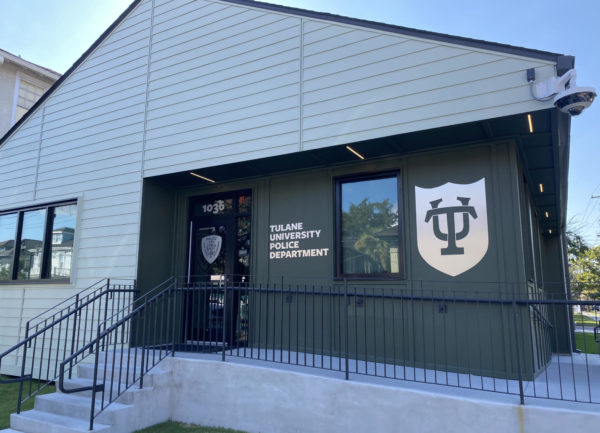
Violent crime notably decreased in New Orleans this year following the removal of COVID-19 precautions and the persistence of statewide police efforts and legislative reforms.
While citizens took isolation measures during the COVID-19 pandemic in New Orleans, assault increased in Louisiana. This trend has since changed, with crime decreasing as a natural result of the restoration of the city’s social structures – including increased access to hospitals and affordable food and housing.
New Orleans Police Department director of communications officer Reese Harper said the 4th District, a southeastern part of the city, “saw a 50% reduction in homicides in the district” and the 7th District, a northeastern part of the city, “is leading all districts with a 40% reduction in violent crime.”
The French Quarter and Central Business District also experienced success in reducing crime. “The [8th] District’s investigative unit has solved every single case assigned to them for the past several months,” Harper said in an email to The Hullabaloo.
The NOPD has been striving to improve its policing methods since the U.S. Department of Justice publicized its constitutional and federal law violations in 2011. The Public Integrity Bureau has made efforts to uphold the integrity of the NOPD, making it accessible for citizens to file complaints via the Bureau’s website.
New policing strategies have been implemented to limit negligence. “These intentional strategies include enhanced data analysis, community engagement, and partnerships with local, state, and federal agencies,” Harper said.
Students living in New Orleans find security in the perception of their university’s location as safe. At Tulane University, students receive crime alerts in the form of school-wide emails to optimize safety.
Tulane senior Alyson Christianson said that as an underclassman, she would “get [these alerts] at least once every week or every other week.” But since the decrease in crime, Christianson noticed that she has only received around two this semester.
“I think Tulane is its own bubble in the sense that we don’t feel the crime the same way,” Christianson said.
Tulane has its own police department dedicated to student and staff protection.
Fear of reverting back to the original state of crime has manifested in the form of harsh legislative reforms at the state level.
The bills passed take a more severe approach to punishment, leading some people to question the rationality of the changes as a method of limiting crime.
“It’s totally irrational,” Tulane Law School clinical assistant professor Stas Moroz said. “We had decades of movement towards criminal justice reform, which was all evidence based…this is going to dramatically increase the number of people in prison on non-violent crimes.”
Standards regarding the death penalty have been reformed, adding additional modes of capital punishment. Louisiana approves of death by lethal injection, nitrogen gas and electrocution, being one of four states — including Alabama, Mississippi and Oklahoma — that permits all three methods.
17-year-olds are now eligible to be treated as adults when committing crimes and misdemeanors. Those charged as juveniles will not have the discretion of concealed records, continuing the agenda of maintaining accountability despite age.
“But what 17-year-old do you know is familiar with the changes in criminal law, especially, what 17-year-old who is struggling?” Moroz said.
The new legislature has eliminated the possibility of parole entirely, and has reduced the amount of time that can be removed from an individual’s sentence due to good behavior. These limitations reduce an inmate’s ability to be released early, even if rehabilitative measures have been pursued.
The harsher parole amendment also reflects changes in how sentencing will be pursued. Louisiana is enforcing truth-in-sentencing laws, which require inmates to serve a larger portion of their originally designated sentence before being eligible for parole.
Skeptics find the title “truth-in-sentencing” to be misleading.
“If you really want to have sentencing that more accurately matches the number the judge gives but keep the incarceration rate similar, you would also have to reduce the sentencing ranges for all the charges,” Moroz said. In Louisiana, the range of sentencing has increased to lengthen time served.
Carrying a concealed handgun has become easier. Citizens no longer require a permit to do so.
“Now you can have a concealed gun without a permit, and so that will probably affect how police make arrests,” Moroz said.


